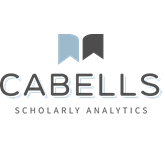Measuring Sustainability Research Impact
- The SDG Impact Intensity Journal Rating will help business schools demonstrate how their research is achieving societal impact, an objective that is emphasized throughout AACSB's 2020 business accreditation standards.
- The traditional metric for evaluating the quality of research journals—“citation intensity”—is devoid of impact considerations that align with business schools' missions and the new standards.
- Through artificial intelligence and machine learning, this complementary metric will build journal profiles based on the United Nations' 17 Sustainable Development Goals (SDGs), enabling schools to show how they're working to address today's vexing global crises.
Transcript
[0:00] [music]
David Steingard: [0:14] I'm grateful to have the opportunity to discuss what is becoming the emerging picture of new accreditation standards that have been introduced around Standard 9 societal impact.
[0:26] Standard 9 is also cross‑cut with three other standards, so four of the nine new standards in accreditation are based on social‑environmental impact.
[0:38] This poses a great transformational challenge for business schools to step up their game and start to demonstrate that their faculty, their teaching, their research outputs, their partnerships are moving in the right direction.
Four of the nine new standards in accreditation are based on social‑environmental impact.
[0:53] In partnership with Cabells, St. Joseph's University Haub School of Business is developing a system of evaluating journals based on the Sustainable Development Goals from the United Nations.
Lucas Toutloff: [1:08] Sustainability is the crisis of our generation, and sustainability‑mindedness, both in line with the SDGs and just the general concept of sustainability, has been an important point in academic research.
[1:30] This project with the SDG Impact Intensity is designed to give every stakeholder on every level the tool to keep track or to measure what they're doing and also to serve as a cross‑motivational tool to where everybody in the industry has an interest in it.
How do we know if this research is about the goals that, as a society, as a community, we're trying to approach?
[1:56] The research community is on the leading edge of caring about sustainability. With the huge amount of research that's out there, we run into problems of discoverability. We run into problems of, how do we know if this research is about the goals that, as a society, as a community, we're trying to approach?
Steingard: [2:21] The traditional metrics of evaluating the quality of research journals is around this idea of citation intensity. Citation intensity basically says, journals are evaluated for their rigors based on how much they are used and how much they are cited.
[2:40] At some level, that makes sense because, if you write an article, and nobody reads it, or nobody cites it, what kind of impact could it have? What we have discovered through the research is that all of the articles that are cited for intensity and the way we metricize our considerations about quality are devoid of impact considerations that align with the new standards of AACSB.
[3:09] For example, you could have very well‑written, very thorough academic articles that do not address any of the vexing and exigent crises that we have going on in terms of climate, in terms of poverty, of gender justice.
[3:28] We have been working on this alternative, complementary metric that will take the Sustainable Development Goals, and all 17 of those very specific normative ethical standards for how to make an impact, and assign them through artificial intelligence, and there's some machine learning, to build profiles of a journal that will demonstrate its impact on these issues.
We are offering the ability for accredited schools to demonstrate their impact through faculty research in line with the SDGs.
[3:56] What you're going to see, which will be very helpful for accreditation along the standard, is the ability to look at with Cabells, and we'll also have some other ways to access this information, journals that you, your faculty publish in that you would like to have counted for their impact on social and environmental measures.
[4:20] It will come up as a wheel rating by the SDG wheel, if you're familiar with that. It will be easily accessible. It is methodologically validated. There's been publications. We are offering the ability for accredited schools to demonstrate their impact through faculty research in line with the SDGs.
Toutloff: [4:40] Ultimately, when it comes to incentives, what gets measured gets done. If we're not able to measure the behaviors that we're trying to encourage, they're not going to get done. There are so many unsung champions, the hidden champions, of sustainability research.
When it comes to incentives, what gets measured gets done.
[5:00] These are people who dedicate their lives to research, who spend most of their day working towards these goals. They're very passionate about it, but their research is not necessarily exposed and not necessarily highlighted to the other institutions that can make use of it or to the other researchers that can build upon it or to industry or to any other consumer research.
[5:25] Being able to increase the discoverability of the research that we want to reward is absolutely essential.
[5:34] [music]







